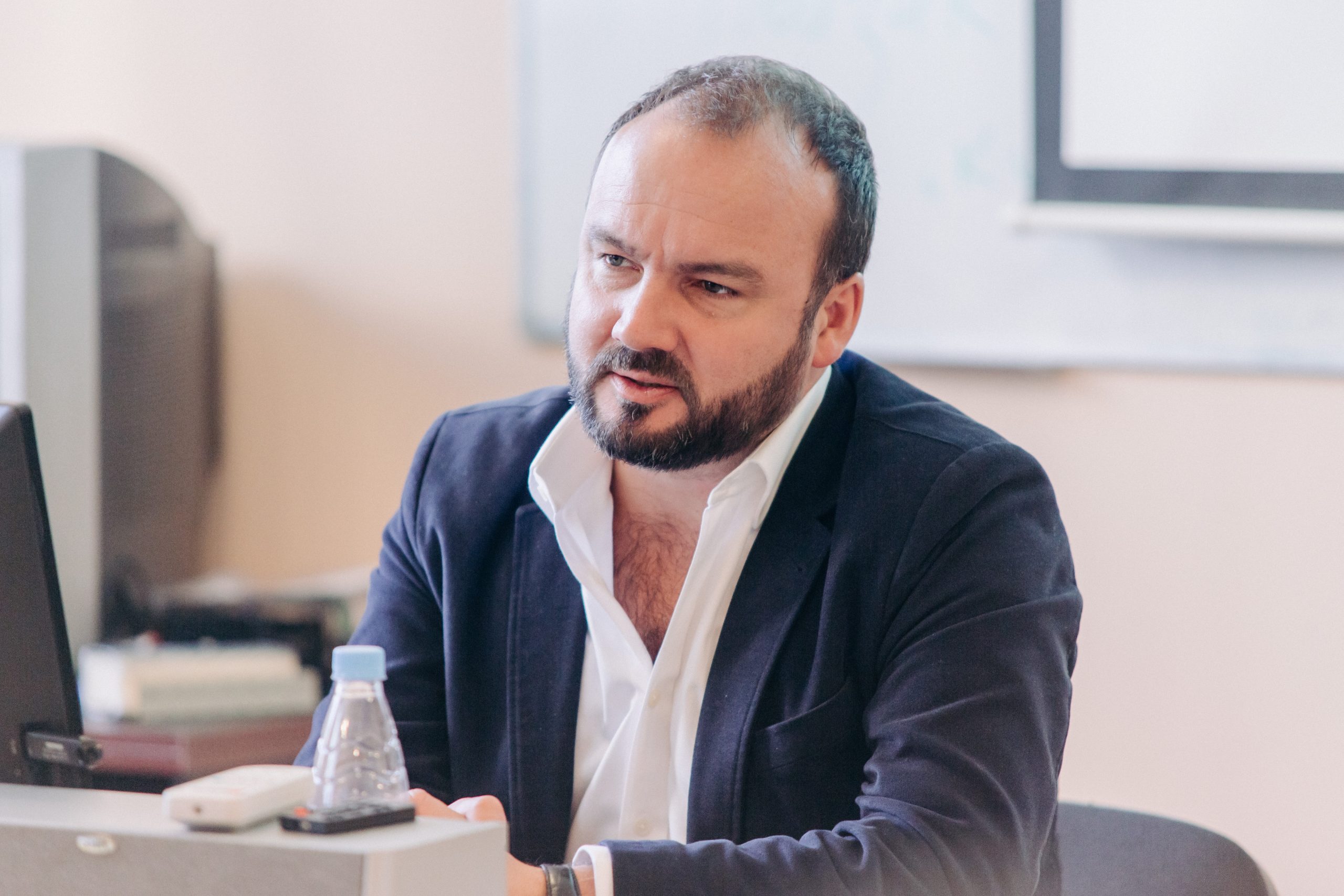by Aaron Wood
ENERPO Students at EUSP engaged in a series of seminars last week, from April 11th to 14th with Louis Skyner, a senior associate at the renowned London firm of Clifford &Chance. Mr. Skyner has worked for several years in energy law, and at Clifford & Chance, he specializes in banking and finance in energy and recourse projects. Before coming to Clifford & Chance, Mr. Skyner served as legal counsel to the Norwegian state company, Statoil, on their upstream development projects with Russian companies. Mr. Skyner spoke at length over a series of four lectures with ENERPO students and fielded questions for discussion.
The four-day seminar series covered the role of governments and investors in upstream development and allocated profits from developed reserves; risk and reward sharing through the development of project sharing agreements, joint operating agreements and joint ventures; methods of project finance and lender issues; and the oil price slide including the impact and consequences of sanctions. Mr. Skyner introduced students with various backgrounds and interests in energy markets and policy and provided a detailed but approachable explanation of core legal and financial concepts and struggles in the energy industry.
Among these was the complicated relationship between private investors and governments as they both seek to fulfil their personal objectives and simultaneously strive to find an agreement that is suitable to bring necessary partners into the fold. In general, investors want to develop reserves and hopefully gain access to downstream markets. A diverse and international asset base for investors is only possible and importantly, profitable, in a stable legal and political environment.
This stable environment is provided through the energy law of a nation in which the private company is operating and is geared to offer a beneficial environment to operating companies such as, but not limited to, the elimination of import and export duties on extraction equipment, establishment of clear fiscal terms and tax regimes, set license duties, clarifying the right of producers to export, as well as the right to seek a redress of grievances in a platform of international arbitrage.
While in theory, this relationship can sound straightforward, it is clear that in practice is has often been far from forthright. As highlighted by Mr. Skyner in his presentation, the Russian experience shows that in Russia, the selective interpretation and application of user rights has resulted in an environment in which many companies do not feel safe making investments and in which certain rights are not guaranteed to be offered to parties without ties to government. So called “liberalization” in LNG export markets in Russia have not resulted in allowing any companies to export LNG, save for those with large shares owned by the government, or those closely tied with the regulatory organs responsible for energy policy in Russia.
Another important part of cooperation between private companies and governments is the so-called “government take”, i.e. the share which the host country believes it has the right to receive for allowing foreign companies to develop and/or export resources from their land. During periods of high oil price, when resource rich countries can easily balance their state budgets via rents, taxes, and license fees they receive, the current glut in oil has put a strain on state budgets of oil producing countries world-wide.
Kazakhstan is currently filing a claim for US$ 1.6 bln against two companies, BG Group and ENI, in a dispute over the pricing formula dictating who receives the lion’s share of profits from a project in the Karachaganak gas condensate field. Some experts believe that such disputes are likely to become all the more common as the price glut continues. In Kazakhstan specifically, this current case further strains relations between the government and independent companies when last year, KazMunayGaz refused to pay the dividend amount recommended by its independent directors. It has also scrapped any plans to pay out dividends this year as well.
Governments with social obligations to fulfill via the collection of resource rents are hard put to provide the services and benefits they purport to provide for the populace. This has also led to more tax increases. As is well known, Russian recently increased its tax regime on the oil industry contrary to the wishes of majors in the industry, who argue that an increased tax regime will hinder efforts for research and exploration in order to keep production high.
The necessary balancing act for resource rich countries who are highly dependent on resource revenues will prove to be a point of conflict in the foreseeable future while oil prices remain low, and no agreement can be reached to hinder production and hopefully boost the oil price and ergo, state revenues. Cases of dispute and arbitration can be expected to become more common as players vie for a bigger portion of a pie ever-decreasing in size.
Farchy, J., 2016. Kazakhstan’s KMG scraps divi amid oil rout. Financial Times, 31 March, 2016.
Reuters, 2016. Kazakhstan Files Claim Against Karachaganak Partners. Upstream Online, 6 April, 2016.

